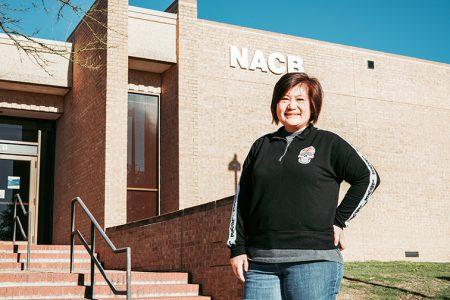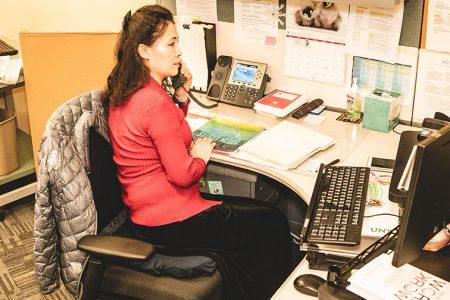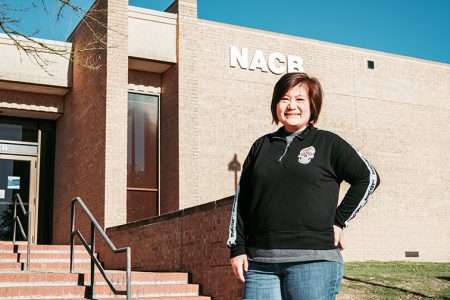| January 29, 2020 | Dang Le | managing editor |
|---|

For some people, Jan. 25 was a regular Saturday. However, for some who are far from home, they just missed one more Lunar New Year and feel they’re supposed to be with their family.
The Lunar New Year, which is also called the Spring Festival, is celebrated in China as well as Taiwan, Vietnam, Korea and countries with significant Chinese populations. It celebrates the beginning of a new year on the Chinese lunar calendar and lasts 16 days. In 2020, the celebration is from Jan. 24 to Feb. 9, and to people from those countries, it is as big of a deal as Christmas is here.
But a large portion of the population living in the U.S. still has to work to continue chasing that American dream they’re hustling to achieve every day.
NE Chinese instructor Ping Ding, who came to the U.S. 22 years ago, will teach her first class this semester on Lunar New Year’s Day.
“Unfortunately, Chinese New Year is not an official holiday,” she said.
Ding plans to share her culture with the students as she believes that may help students better learn the language.

Vivian Lu, enrollment associate in International Admissions, came to the U.S. by herself in 1993 and started her master’s degree at Texas Wesleyan University in education with an English as a Second Language (ESL) concentration. She is nostalgic about the holiday with her family.
“I remembered my family making dumplings together, listening to firecrackers, and we will see the debris of the fireworks in the morning,” she said. “Even though it’s loud, it is New Year.”
During her four years studying in the U.S., Lu never flew home.
Lu entered the country shortly after the Tiananmen Square massacre in 1989. She said that shortly after, the U.S. started to limit the amount of Chinese entering the country.
“I never went back home because I was afraid that they wouldn’t let me back in. The U.S. is always strict with Chinese people coming in,” she said. “It was very lonely.”
She remembered China still had the tradition of having Lunar-New-Year firecrackers for 15 days straight.
“I usually call my mother,” she said. “Every time I call, I always hear firecrackers behind. Those calls remind me it’s New Year.”
Lu finds celebrating Christmas fun, but the experience is different.
“When I was a student, I was invited by faculty members to come and celebrate Christmas. That’s fascinating because we exchange gifts and have dinner together,” she said. “But it’s different because Christmas is quiet, and people celebrate inside.”
She said the Lunar New Year is noisy. Every restaurant is full. Crowds are everywhere.
“It’s a tradition that you wear new clothes and new shoes during the new year,” she said.
But for Lu it’s all worth it. She came to the U.S. with only $1,000 and ate rice, potatoes and cabbage. She now has her degree and a stable job.
“I was kinda like a pioneer,” she laughed.
NE student Chin-hua Mu arrived in the U.S. 20 years ago from Taiwan after marrying her husband.
“My first year is so lonely because it’s all different from home and here,” she said.
To her, everything felt strange at first after moving far away from her family. She remembers the tradition on Lunar New Year. When she was young, her parents would give her a little red envelope with money in it. She put it under her pillow because she said when she woke up on the first day of the Lunar New Year, she would begin the year with “lucky money.”
She learned to cope with loneliness as the days passed. She calls her parents every week, and while she still misses them, she is no longer sad.
Mu takes her first ESL class at TCC, while her son is a freshman at UTA.
“I want to study English because when you’re not understanding the language, people treat you very low,” she said.
Mu works as a cashier at the restaurant she and her husband co-own. However, she finds difficulty getting along with the other owner and his family.
“Sometimes I know the word, but if I pronounce it wrong, people just laugh at me,” she said. “I just don’t want to be taken lightly by others.”
She plans to finish the first four ESL classes and travel home next Lunar New Year.
“But now that my son is grown up, I think I can come home during the new year.”

